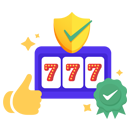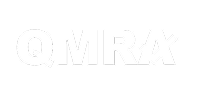How to verify casino licenses
When I’m trying a new online casino, the very first thing I check is its license. A proper license tells me the site has been vetted by a regulator, the games are fair, and there’s someone I can turn to if something goes wrong. An unlicensed site might look flashy, but without regulation there’s no safety net which can mean frozen withdrawals, rigged games, or personal details at risk.
In this guide, I’ll walk you through what a casino license is, who the major regulators are, and how I check if a site is legit. I’ll also point out the warning signs of unlicensed casinos and explain how sweepstakes casinos fit into the picture since they operate under a different legal framework in the US.
What is a casino license?
A casino license is official permission from a government or regulatory authority that allows a casino to operate legally.
It’s actually what holds the operator accountable. Licensed casinos have to prove their games are fair, keep player funds separate from business funds, and follow rules around data protection and responsible gambling.
For players like me, that license is a layer of protection. It means the casino’s random number generators are tested, payouts are monitored, and disputes can be escalated to a regulator if the operator doesn’t play fair. Without a license, none of those are in place.
Top regulatory authorities for online casinos
Not all casino licenses carry the same weight. Some regulators are known for strict oversight, while others are more hands-off. When I check a casino, I always pay attention to who issued the license, because that tells me how much protection I can really expect.
United States licensing bodies
In the US, online casinos are regulated at the state level. Here are the main names I look for:
- New Jersey Division of Gaming Enforcement (DGE). It’s safe to say that’s one of the toughest regulators in the world. Every operator in NJ has to meet strict standards for fairness, security, and responsible gambling.
- Nevada Gaming Control Board (NGCB). The state is best known for land-based casinos in Las Vegas, but it also oversees online poker and sports betting.
- Pennsylvania Gaming Control Board (PGCB). Regulates both online casinos and sportsbooks with a strong focus on consumer protection.
International casino regulators
US players often come across casinos licensed overseas. These regulators vary in how strict they are, but the most common ones I’ve noticed are:
- UK Gambling Commission (UKGC). This one is considered the gold standard internationally. UKGC sites are heavily monitored and must follow strong player protection rules.
- Malta Gaming Authority (MGA). Another respected regulator. MGA casinos have to pass financial checks and submit to independent game testing.
- Curacao eGaming. One of the most common licenses worldwide because it’s easier and cheaper to obtain. It allows legal operation, but the level of player protection is weaker compared to UK or US regulators.
- Gibraltar Regulatory Authority (GRA). Small but reputable, often used by big-name European casinos.
- Kahnawake Gaming Commission (KGC). Canada-bsed, this regulator has licensed many international casinos and poker rooms since the 1990s.
I always treat these licenses as context. A UKGC or MGA license gives me confidence. A Curacao license means the casino is legal but I’m more cautious about dispute resolution and customer support.
How to check if a casino is licensed
I like to keep this process simple. Any legit casino should be able to prove its license in a few minutes if you know where to look. For instance, a sign of a legitimate, licensed casino is a proper Know Your Customer (KYC) process. It can feel like a hassle, but verifying your ID and address up front is both a legal requirement and the fastest way to ensure smooth withdrawals later on.

Check the casino’s website
The first place I look is the casino’s own platform. Most licensed casinos display their license number and regulator logo in the footer, on the About page, or in the terms and conditions. If I can’t find anything there, that’s already a red flag.
When I do see a license number, I make sure it matches the regulator’s official format. Some shady sites throw in fake logos, so it’s never a bad idea to double-check.

Cross-check with the regulator’s website
Once I have the license details, I go straight to the regulator’s official website. Most of them have searchable databases where you can look up a casino by name or license number. That tells me if the license is active, expired, or suspended.
This step takes less than a minute and gives me real peace of mind. If the license number doesn’t show up on the regulator’s site, I walk away.

Look for third-party audits
Licenses aside, I also check for independent testing and certifications from groups like eCOGRA, iTech Labs, or GLI (Gaming Laboratories International).
Licensing ties into this because regulators require ongoing audits of random number generators (RNGs). Labs like eCOGRA, iTech Labs, and GLI run rolling statistical checks to make sure the games stay fair over time.
When I see an audit seal linked to a real certificate, it confirms the site is taking fair play seriously. No seal or a broken link is always a warning sign.
Signs of an unlicensed or rogue casino
If a casino is unlicensed, it usually shows. The trick is spotting the signs early, before I deposit. For me, even one of these signs is enough to be cautious. If I see several at once, I close the tab and look for a properly licensed alternative.
Here are the warning signals I look for when looking out for casino scams:
- No license details anywhere. If I can’t find a license number or regulator’s name within a minute, I don’t stick around.
- Fake or mismatched logos. Some sites copy regulator seals without a valid license. If the logo isn’t clickable or doesn’t match the details on the regulator’s site, that’s a problem.
- No third-party audits. Legit casinos usually show certifications from groups like eCOGRA, iTech Labs, or GLI. If I don’t see any independent testing, I assume fairness hasn’t really been checked.
- Shady payment terms. Vague rules about deposits, hidden withdrawal fees, or unclear payout limits are a huge red flag. If the terms don’t spell out how and when I’ll get my money, I move on.
- Slow or blocked payouts. When players consistently complain about long delays or missing withdrawals, it usually means the operator isn’t regulated or isn’t worried about losing a license.
- No responsible gambling tools. If a casino doesn’t offer deposit caps, cooling-off periods, or self-exclusion, it’s cutting corners on player safety.
- Unverified software or games. If I see a game library with no mention of trusted providers, there’s no guarantee the slots or tables are running on real RNGs.
- Too-good-to-be-true bonuses. Unlicensed casinos often lure players with massive bonus offers and no clear terms. If the promotion looks unrealistic or the fine print is vague, I take it as a warning.
- Poor (or lack of) casino customer support. A site with no live chat, no listed support email, or a generic contact form is usually hiding bigger issues.
- Bad reputation online. A quick search often reveals player complaints about rigged games, locked accounts, or disappearing balances. If the same issues pop up repeatedly, I stay away.
- No SSL security. A licensed site uses SSL encryption to protect data and payments. If I don’t see the padlock icon or “https://” in the address bar, I back out immediately.
Are sweepstakes casinos licensed?
Sweepstakes casinos operate under US sweepstakes and promotional contest laws, not traditional gambling licenses. Their legal framework is different from real-money casinos, which is why terms often highlight “no purchase necessary.”
When I check a sweepstakes site, I focus on if it follows those rules. Legit operators provide free entry methods, keep Sweeps Coins as the prize-eligible currency, and use Gold Coins for entertainment play.
I look for clear redemption rules, visible explanations of the dual-currency model, and an outlined free entry option in the FAQs. When those details are present and easy to find, I know the site is running within the proper framework and is not running a sweepstakes scam.
FAQs
How do I know if an online casino is legit?
I check for a valid license number in the footer or terms, confirm it on the regulator’s official website, and look for third-party testing seals. If all three are in place, I can trust the site is fair.
What happens if I play at an unlicensed casino?
Unlicensed sites carry risks: frozen withdrawals, unfair games, and no regulator to escalate complaints. Playing there leaves me without protection.
Are Curacao-licensed casinos safe?
A Curacao license allows a casino to operate legally, but the oversight is lighter than regulators like the UKGC or New Jersey DGE. I approach them with caution and pay extra attention to player reviews and payout history.
Do US sweepstakes casinos need a gambling license?
They run under sweepstakes and promotional contest laws instead of gambling licenses. Compliance comes from free entry methods.
Can I report an unlicensed casino?
Yes, of course. I can report it to state gaming boards in the US, or to consumer protection agencies if the casino targets US players without approval.
Sources
Other casino guides that may interest you
- Gambling budget
- Instant win sweepstakes
- Sweepstakes rules
- Sweepstakes cash prizes
- Social casinos explained
- Sweepstakes verification
- Legit sweepstakes casinos
- Swepstakes Gold Coins
- Sweepstakes vs traditional betting
- What are sweepstakes casinos?
- Types of bonuses
- Comparing online casino games
- Casino games 101
- Real money games
- Crypto betting
- Sweepstakes benefits
- Fish games strategy
- Sweepstakes coins
- No-deposit bonus FAQs
- Deposit vs no-deposit bonuses
- Casinos 101
- Casino promo codes 101
- Sweepstake betting
- Slots strategies
- Slots budget tips
- Online casinos vs. land-based casinos
- Casino bonuses 101
- Casino no-deposit bonuses 101
- Keno odds guide
- Small bankroll guide
- Withdrawal limits
- Keno strategies
- Casino delayed withdrawals
- Legitimate no-deposit casino bonuses
- Sweepstakes casino bonus TandCs
- Casino customer support guide
- Sweepstakes casino strategies
- Casino payment methods guide
- Sweepstakes taxes
- Sweeps vs social casinos
- Common casino scams guide
- Casino withdrawal methods guide
- Sweepstakes scams
- Sweeps vs real money casinos
- Blackjack strategy online
- How to play craps online
- How to play baccarat online
- Spin the wheel
- Online gambling statistics



